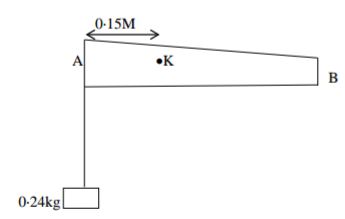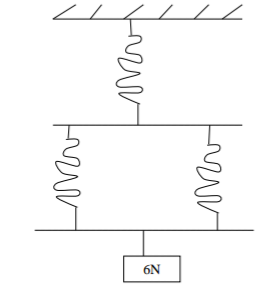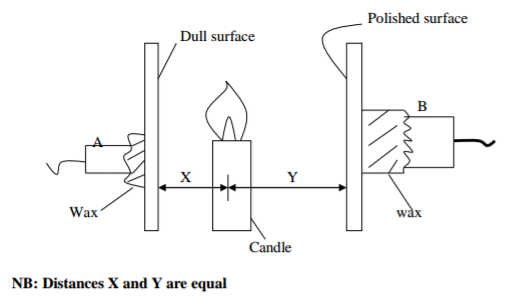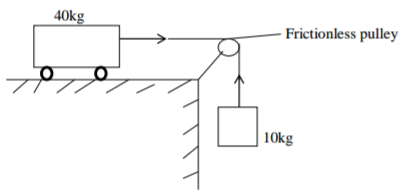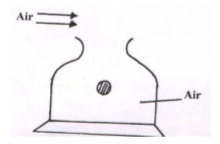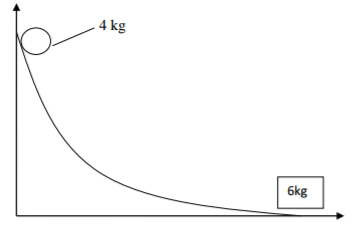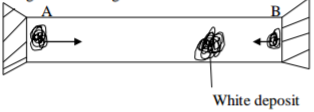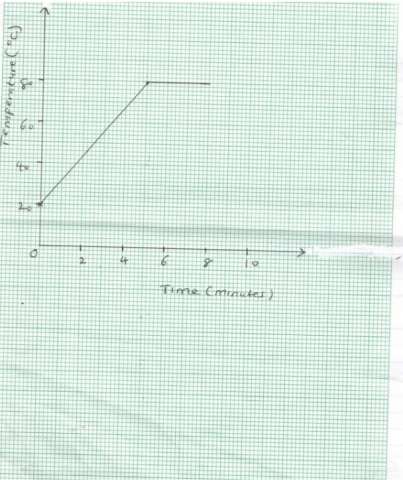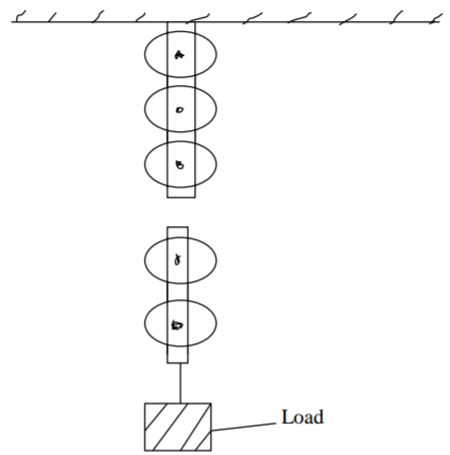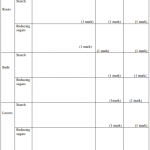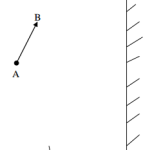KNEC KCSE Physics Paper 1 Question Paper / 2016 KCSE 4MCK Joint Exam
2016 KCSE 4MCK Joint Exam
Physics Paper 1
SECTION A (25 Marks)
50 drops of water each of volume 0⋅05cm3 were added on to a burette whose readings is a
shown in the figure below.
Water
Tap
Indicate on the diagram the new level after the drops were added.
2 marks
A lorry of mass 13⋅4 tones is moving at a speed of 72km/h. Determine its momentation
giving your answer in S.I units.
2 marks
A piece of glass weighs 0⋅5 W in air and 0⋅3N while completely submerged in water.
Determine the density of the glass material.
3 marks
A quantity of gas occupies a volume of 4m3 when the pressure of the gas is 4
atmospheres when its temperature is 27°C. What will be its pressure if it is compressed
into half the volume and heated to a temperature of 127°C.
3 marks
A non-uniform plank of wood AB of mass 0⋅50kg balances on a point K 0⋅15m from the
end A when a 0⋅24kg mass is suspended from one end as shown.
Determine the distance of the centre of gravity of the plank from end A.
3 marks
Three identical springs each of springs constant 10Nm-1 and weight 0⋅5N are used to
support a load as shown
Determine the total extension of the system.
3 marks
A person of mass 60kg stands on a spring balance inside a lift. The lift accelerated
upwards at 3ms-1. Calculate the reading on the spring balance.
3 marks
The figure below shows two equal identical masses A and B fixed onto two similar
aluminum plates, one polished and the other painted black using wax as shown.
NB: Distances X and Y are equal
A Bunsen flame is placed mid way between the two plates. State and explain the mass which
falls first when the set up is left for sometime.
2 marks
A catapult is used to project a stone of mass 40g vertically upwards to a height of 5m.
Calculate the potential energy gained by the stone.
2 marks
A trolley of mass 40kg is initially at rest on a horizontal surface. It is connected by a
light inextensible rope running over a frictionless pulley to a mass of 10kg.
Determine the acceleration of the masses when the system starts to move (take g – 10m/s2)
3 marks
The figure below shows a light body floating in a container.
State and explain the observation when a stream of air is blown over the mouth of the container
as shown.
2 marks
SECTION N (55 Marks)
ANSWER ALL THE QUESTIONS IN THIS SECTION
a) State the characteristics of a perfectly inelastic collusion. (2 marks)
b) A body of mass 4⋅0kg held at a vertical height of 500cm is released to travel along a
frictionless curved path as shown below.
The 4kg mass strikes another body of mass 6⋅0kg at rest immediately it reaches the horizontal
and sticks together and move in the same direction. Determine the velocity of the bodies
immediately after collision. (4 marks)
c) i) A matatu whose mass is 2500kg is lifted using a screw jack of 10mm pitch. If the handle is
30cm from the screw. Find the force applied (neglect friction and π = 3⋅142). (4 marks)
ii) The figure below shows inclined plane and a load of mass 30kg pulled by an effort of 100N.
Find the efficiency of the machine. (3 marks)
13 marks
a) Differentiate angular velocity and angular acceleration. (2 marks)
b) A body of mass 200g is tied to a string and whirled in a vertical circle of radius 2m with a
speed of 6m/s. Calculate
i) The angular velocity (2 marks)
ii) The tension in the string at the lowest position of the body. (3 marks)
c) A body of mass 500g is whirled in a vertical circle of radius 0⋅5m with uniform speed. At the
highest point the tension in the string is 0⋅8N. Calculate the uniform speed of the body. (3 marks)
10 marks
a) What is diffusion? (1 mark
b) A smoke cell contains a number of trapped air and smoke. The cell is brightly lit and viewed
through a microscope. State and explain what is observed. (2 marks)
c) A beaker is filled completely with water. A spoon full of common salt added slowly, the salt
dissolves and the water does not overflow.
i) State why the salt is added slowly. (2 marks)
ii) Why doesn’t the water overflow? Explain. (2 marks)
d) The figure shows two gases diffusing.
i) Name the gases. (2 marks)
A __________________________________________
B ___________________________________________
ii) What conclusion do we make from the experiment? (1 mark)
10 marks
a) State two differences between boiling and evaporation. (2 marks)
b) 1200g of a liquid at 20°C is poured into a well lagged calorimeter. An electric heater rated
1KW is used to heat the liquid. The graph below shows the variation of temperature of the liquid
with time.
Use the graph to answer the following questions.
i) What is the boiling point of the liquid? (1 mark)
ii) How much heat is given out by the heater to take the liquid to the boiling point?
(2 marks)
iii) Determine the specific heat capacity of the liquid stating any assumptions made.
(2 marks)
iv) If 50g of the liquid vapour was collected by the end of the 8th minute, determine the
specific latent heat of vaporization of the liquid. (2 marks)
9 marks
a) i) Define velocity ratio of a machine. (1 mark)
ii) The figure below shows part of a pulley system being used to lift a load.
Complete the diagram to show how the string must be passes through the pulley’s so as to have
velocity of 5. (2 marks)
iii) Suggest any two possible reasons why the efficiency does not reach the 100% mark.
(2 marks)
b) The effort piston of a hydraulic machine is of radius 2⋅8cm while that of the load piston is of
radius 14cm. The machine raises a load of 120kg at a constant velocity through 2⋅5m. If the
machine has an efficiency of 80%, find;
i) The velocity ratio of the hydraulic machine. (2 marks)
ii) The mechanical advantage of the hydraulic machine. (3 marks)
iii) The effort needed to raise the load. (3 marks)
13 marks
